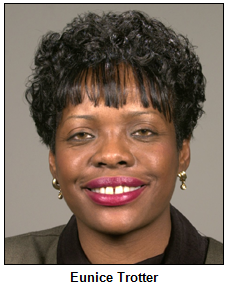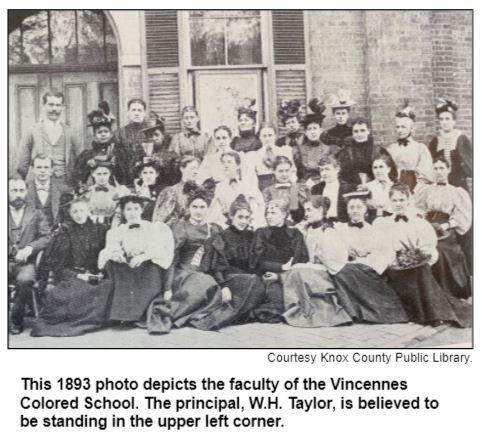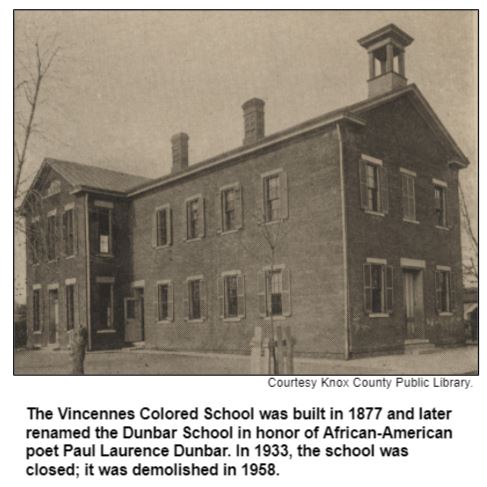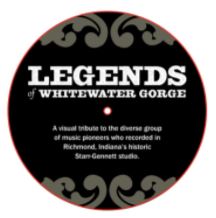Saturdays, noon to 1 p.m. ET on WICR 88.7 FM.
Or stream audio live from anywhere on WICR Online!
July 24, 2021
African-American students during the late 1800s in Indiana
Click here to listen to the podcast.
During the 1860s and '70s, "colored schools" (the term used during that era) began to open in Indiana. State laws required Black students to be educated in schools separate from their white counterparts.
 In 1886, the ceremony for the first graduate of Vincennes Colored High School in southwestern Indiana sparked a national controversy when whites boycotted the event, according to an article in the spring issue of Traces of Indiana and Midwestern History, the magazine published by the Indiana Historical Society.
In 1886, the ceremony for the first graduate of Vincennes Colored High School in southwestern Indiana sparked a national controversy when whites boycotted the event, according to an article in the spring issue of Traces of Indiana and Midwestern History, the magazine published by the Indiana Historical Society.
The article's author is acclaimed journalist, historian and researcher Eunice Trotter, who will be Nelson's guest to share insights about the ways Indiana cities handled the education of African American youth during the late 19th century.
During the 1870s, the first African-American student graduated from a predominantly white high school in Indianapolis. Mary Rann graduated from Indianapolis High School (later renamed Shortridge High School) in 1876. While much about her background and the milestone event is unknown, "it did open the way for others," Eunice writes.
The high school graduation 10 years later of Vincennes resident Grace Brewer was much more widely publicized because of the boycott of the citywide commencement by many white residents. They included pastors of local churches and business leaders as well as their teenage sons and daughters who were scheduled to graduate from Vincennes High School.
Although Grace Brewer became the first African American to graduate from a high school in Knox County, Eunice writes, "Many local Blacks [previously] had received individual education through schools tied to churches and went on to African-American colleges before Brewer's time."

Also in 1886, a Black student in the Ohio River town of Vevay had completed her high school studies at a white school, but school board members "refused her the privilege of graduating with members of her class," according to Eunice's article. In Washington, Ind., objections from white students to including a Black classmate in their graduation exercises meant that two commencements were held.
Our guest Eunice Trotter has had a long and distinguished journalism career that has included serving as the first African-American editor at the Indianapolis Star (her jobs included assistant city editor and assistant business editor) and a stint as publisher of the Indianapolis Recorder. In 2017, Eunice was inducted into the Indiana Journalism Hall of Fame.
Although she grew up in Indianapolis, Eunice has deep ancestral roots in Vincennes. In 1821, her ancestor Mary Bateman Clark and an attorney sued her employer to gain release from a long-term "indentured servitude" contract that courts ruled was, in actuality, slavery. Eunice coordinated efforts to get a historic marker at the Knox County Courthouse in recognition of Mary Bateman Clark's precedent-setting case. In 2010, she discussed the landmark case on a Hoosier History Live show about slave trials during the 1820s in Indiana.
Questions about our organizational structure?
Hoosier History Live is a small, independent production group and is run as a small business. We have had a lot of challenges over the years because we do things well and also ask for money to support our work. We have kept the ship afloat, although it has been difficult. We intend to hold on to our unique media voice. Furthermore, we believe we are the only live talk show with call-in about a state's history.
Think of us as a small newspaper, except that we are multi-platform. In addition to a live radio show, we offer podcasts, social media, weekly newsletter and a detailed website with an extensive, searchable archive. And think of how many media outlets are shrinking or disappearing!
This means that we sell sponsorship, which includes logos and links, as well as voiced credits in the live show and in podcasts. For individual contributors, this means helping to support the performers, researchers and editors who work so hard each week. Financial support also helps to pay for our website, newsletter, computer storage, and other tech costs. Any of this can be discussed with our producer; she can be contacted at molly@hoosierhistorylive.org.
But our biggest asset is labor; the very bright and talented people who work on the project. All of our team has a passion for doing things well.
.
Nelson Price, host and historian
Molly Head, producer/general manager, (317) 927-9101
Mick Armbruster, associate producer
Cheryl Lamb, administrative manager
Richard Sullivan, senior tech consultant
Pam Fraizer, graphic designer
Garry Chilluffo, consultant
Please tell our sponsors that you appreciate their support!

 For organizational sponsorship, which includes logos, links, and voiced credits in the show and in podcasts, email molly@hoosierhistorylive.org, or call (317) 927-9101 for information. Our podcast listens are increasing and we are being distributed on Indiana Memory and the National Digital Public Library. Grow with us as our podcast and internet presence expands! Thanks also to Visit Indy, Fraizer Designs, WICR-FM, Henri Pensis, Genesis Brown, Kielynn Tally, Heather McIntyre, Justin Clark, and many other individuals and organizations.
For organizational sponsorship, which includes logos, links, and voiced credits in the show and in podcasts, email molly@hoosierhistorylive.org, or call (317) 927-9101 for information. Our podcast listens are increasing and we are being distributed on Indiana Memory and the National Digital Public Library. Grow with us as our podcast and internet presence expands! Thanks also to Visit Indy, Fraizer Designs, WICR-FM, Henri Pensis, Genesis Brown, Kielynn Tally, Heather McIntyre, Justin Clark, and many other individuals and organizations.
Thank you!
We'd like to thank the following recent, new and renewal contributors whose donations help make this show possible!
- David Yount
- Tom Swenson
- John Stanton
- Kathleen Angelone
- Tim and Meg Shelly
- Ann Frick
- Dr. William McNiece
- Michael Freeland and Sharon Butsch Freeland
- David E. and Lynne J. Steele
- Greg Larson
- Ryan Zumbahlen
- Melissa Martin
Copyright 2021
|






